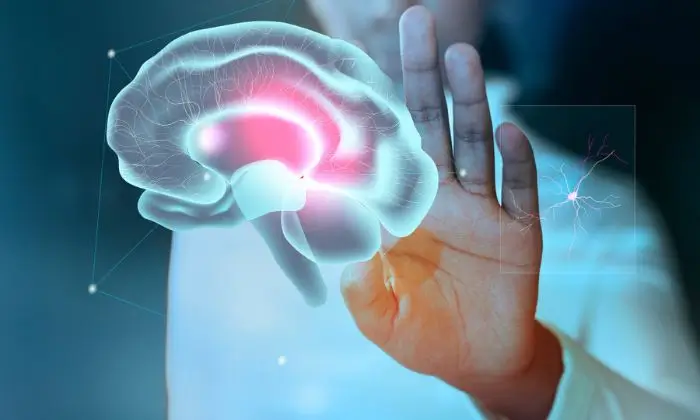Thane West, Maharashtra, 400601
Blogs

What Are the Symptoms of Brain Tumor?
Brain tumors are abnormal growths of cells within the brain or central nervous system. They can be benign (non-cancerous) or malignant (cancerous), but both types can put pressure on brain tissues and interfere with critical functions. Because the brain controls nearly every aspect of our body, even small tumors may cause noticeable changes. Understanding what are the symptoms of brain tumor can help in detecting the condition early and seeking timely medical care.
Why Symptoms of a Brain Tumor Are Complex
The symptoms of a brain tumor vary based on:
- Location of the tumor (frontal lobe, cerebellum, brainstem, etc.)
- Size and growth rate
- Pressure on surrounding tissues and nerves
Some people may have subtle signs at first, while others develop sudden and severe problems. The key is not to ignore persistent or unexplained changes in your body and behaviour.
Common Symptoms of Brain Tumour
1. Persistent or Severe Headaches
Headaches are among the most common early indicators. Unlike regular headaches, brain tumour–related pain may:
- Be more severe in the morning or after waking
- Worsen with coughing, sneezing, or physical activity
- Not improve with usual pain relievers
2. Nausea and Vomiting
Unexplained nausea or vomiting, especially when not linked to food poisoning or stomach flu, may be due to increased pressure inside the skull (intracranial pressure).
3. Seizures
Even in people without a history of epilepsy, seizures can be a sign of abnormal brain activity triggered by a tumor. Seizures may appear as:
- Sudden jerking movements
- Loss of consciousness
- Temporary confusion or staring spells
4. Cognitive and Personality Changes
A brain tumor may cause subtle or dramatic changes in behaviour, such as:
- Memory problems
- Difficulty concentrating
- Poor decision-making
- Mood swings, irritability, or depression
5. Vision Problems
Depending on the tumor’s location, patients may experience:
- Blurred or double vision
- Loss of peripheral vision
- Partial or complete vision loss in one eye
6. Speech or Hearing Difficulties
Tumors in language or auditory areas of the brain can cause:
- Slurred speech
- Trouble finding words
- Difficulty understanding spoken language
- Hearing loss or ringing in the ears
7. Balance and Coordination Issues
If the tumor is in the cerebellum (which controls movement), symptoms may include:
- Difficulty walking straight
- Frequent stumbling
- Problems with fine motor skills like buttoning a shirt
8. Weakness or Numbness
A tumor pressing on motor areas of the brain may lead to weakness, numbness, or paralysis on one side of the body (hemiparesis).
9. Fatigue and Drowsiness
Constant tiredness, even with adequate rest, can be due to the body’s energy being diverted to fight the tumor or because of disrupted brain signals.
Less Common but Important Symptoms of Brain Tumor
- Endocrine issues: Tumors near the pituitary gland can disrupt hormones, leading to weight changes, irregular periods, or abnormal growth in children.
- Difficulty swallowing: Tumors in the brainstem may affect swallowing and speech.
- Unexplained fainting spells: A rare but possible warning sign.
When to Seek Medical Attention
You should see a doctor if you experience:
- Headaches that are persistent and unusual
- Seizures without a prior history
- Vision or speech changes
- Sudden weakness, numbness, or balance problems
- Significant unexplained behavioural changes
Early diagnosis does not always mean cancer, but it ensures timely treatment of whatever condition is causing the symptoms.
Diagnosis of Brain Tumor
If your doctor suspects a brain tumor, common diagnostic tests include:
- Neurological exam: Testing reflexes, vision, coordination, and memory.
- Imaging scans: MRI and CT scans provide detailed pictures of the brain.
- Biopsy: A small tissue sample may be taken to determine if the tumor is benign or malignant.
Why Early Detection Matters
Recognising what are the symptoms of brain tumor early can:
- Improve treatment outcomes
- Reduce the risk of permanent neurological damage
- Offer more treatment options (surgery, radiation, chemotherapy)
- Help manage symptoms before they worsen
Coping with Brain Tumor Symptoms
Along with medical treatment, lifestyle support helps manage daily challenges:
- Rehabilitation therapy: Speech, occupational, and physical therapy aid recovery.
- Nutritional support: A healthy diet boosts energy and supports treatment.
- Counselling and support groups: Emotional support is critical for patients and families.
Conclusion
Understanding what are the symptoms of brain tumor is vital for awareness and early medical care. Symptoms may range from headaches, seizures, and vision problems to subtle changes in memory and behaviour. Because many of these signs overlap with other health issues, it is essential not to panic but to seek medical evaluation if symptoms are persistent, unusual, or worsening.